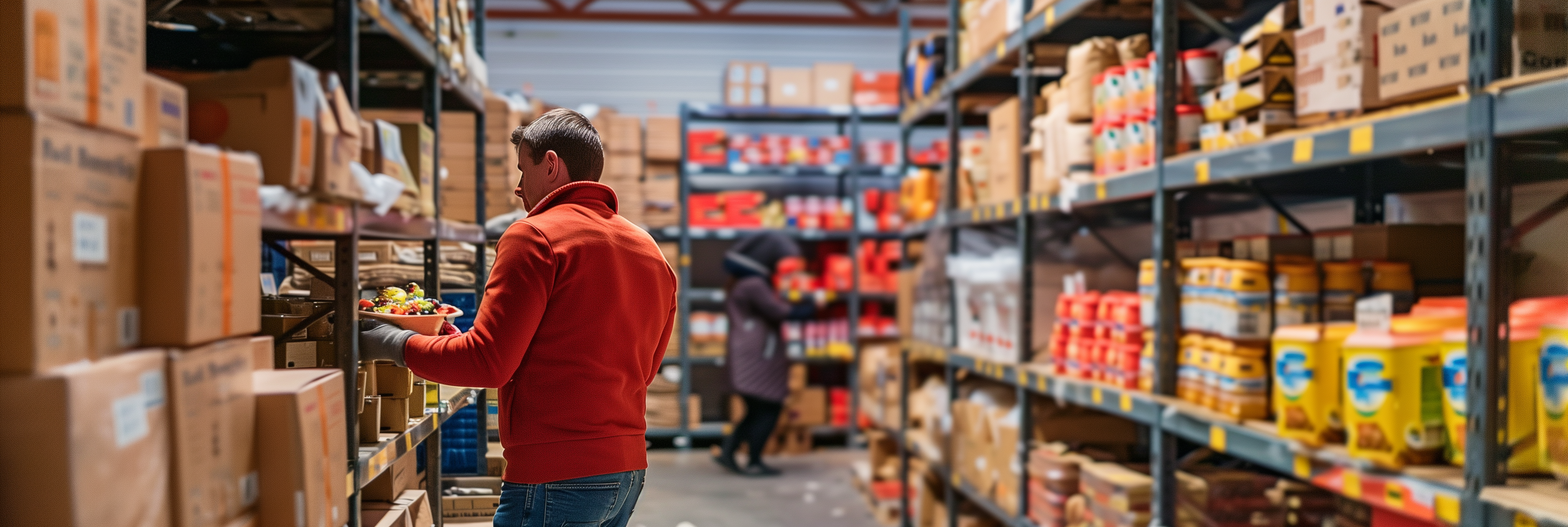
Nutritional Considerations for Long-Term Emergency Food Supplies
Nutritional Considerations for Long-Term Emergency Food Supplies
When disaster strikes, access to food can become limited, and emergency food supplies become crucial. Even small localised emergencies can see shortages of tinned goods, pasta and rice, bread, flour, fresh produce and bottled water within a few hours of an incident - and the recent pandemic only hinted at the potential impact of a significant nation crisis.
However, when building an emergency food supply, it's essential to ensure that the food you stockpile is nutritionally balanced and can meet your daily dietary requirements. In this article, we'll explore some nutritional considerations for long-term emergency food supplies.
- How to create a balanced diet using non-perishable foods
Non-perishable foods are an essential component of any emergency food supply. These foods can last for months or even years without refrigeration, making them a reliable option for long-term storage. However, it's crucial to create a balanced diet using these non-perishable foods.
When creating a balanced diet, consider including a variety of foods from the following groups:
- Grains: Rice, pasta, oats, quinoa, and other grains are rich in carbohydrates and can provide you with sustained energy.
- Proteins: Canned fish, beans, nuts, and peanut butter are all excellent sources of protein.
- Fruits and vegetables: Dried fruits, canned vegetables, and fruit cups can provide you with essential vitamins and minerals.
- Fats: Nuts, seeds, and nut butters are excellent sources of healthy fats.
- The importance of vitamins and minerals in emergency situations
During emergency situations, it's crucial to ensure that you are getting enough vitamins and minerals. These nutrients are essential for maintaining good health and can help boost your immune system, which is crucial during times of crisis.
When stockpiling emergency food supplies, consider the following essential vitamins and minerals:
- Vitamin C: This vitamin is crucial for a healthy immune system and can be found in canned fruits and vegetables, fruit cups, and juice boxes.
- Calcium: Calcium is essential for healthy bones and teeth and can be found in canned milk, cheese, and fortified cereal.
- Iron: Iron is essential for healthy red blood cells and can be found in canned beans, spinach, and fortified cereal.
- Vitamin D: This vitamin is crucial for bone health and can be found in canned fish, fortified milk, and fortified cereal. Additional Vitamin D supplements are recommended for people who do not get enough exposure to sunlight.
- Best practices for rotating food supplies to ensure freshness and nutrition
To ensure that your emergency food supplies remain fresh and nutritious, it's crucial to rotate your supplies regularly. Here are some best practices for rotating your food supplies:
- Check expiration dates: Make sure to check the expiration dates on all your food supplies regularly.
- Use the "first in, first out" method: When restocking your supplies, use the oldest items first and replace them with newer items.
- Keep track of inventory: Keep an inventory of all your emergency food supplies, so you know what you have and what you need to restock.
- Tips for incorporating fresh foods when available
While non-perishable foods are an essential component of any emergency food supply, it's important to incorporate fresh foods when available. Here are some tips for incorporating fresh foods:
- Start a garden: Starting a garden can be a great way to produce fresh fruits and vegetables.
- Consider hydroponics: Hydroponics is a method of growing plants without soil and can be done indoors, making it a great option for emergency situations.
- Support local farmers: If local farmers are still producing fresh fruits and vegetables, consider supporting them by purchasing their produce.
In conclusion, when it comes to emergency food supplies, it's essential to prioritize nutrition and ensure that you are getting enough vitamins and minerals. By creating a balanced diet using non-perishable foods, rotating your supplies regularly, and incorporating fresh foods when available, you can ensure that your emergency food supplies will sustain you during a crisis.
Suggested Articles
Emergency Food for Low-Income Individuals: Access and Affordability in Times of Crisis
During times of crisis, securing basic necessities becomes a challenge, with food security becoming an urgent concern...
Prepping for Emergencies with Children: A Comprehensive Guide for UK Families
How to Keep Your Family Safe, Informed, and Ready for Any Emergency Introduction Emergencies can happen at any time, ...
Emergency Food Supply for Multi-Day Power Outages: A Comprehensive Guide for UK Residents
Power outages can strike at any time, and with an increasing demand for electricity and a more volatile climate, the ...




